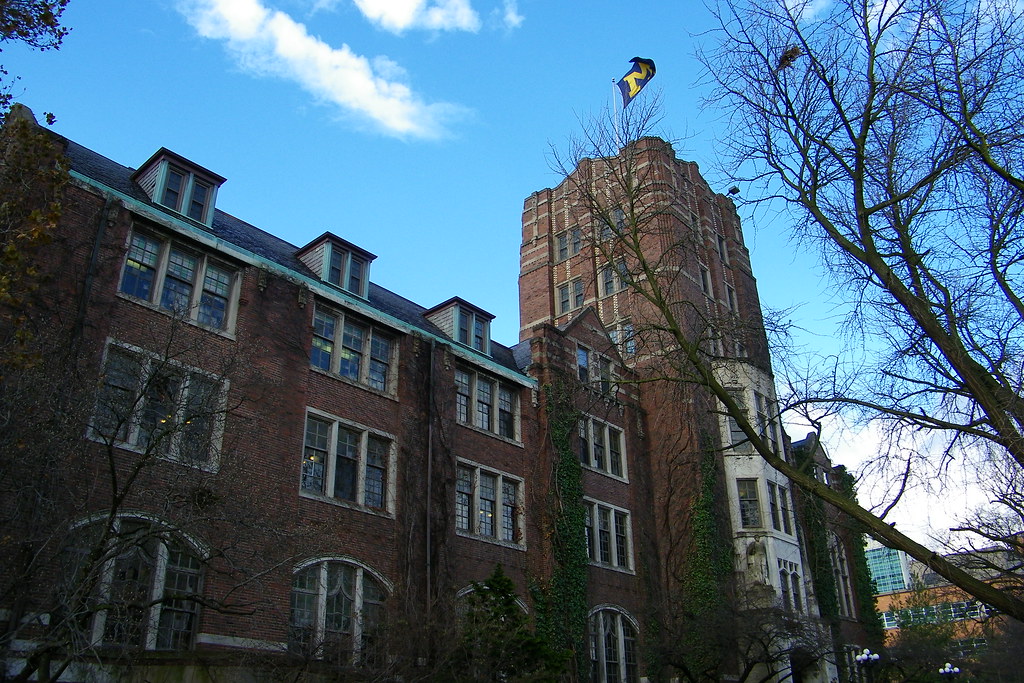The College of LSA has many introductory courses meant to help students navigate their way through school. Many of these are ALA courses, usually targeted towards first-year and transfer students. These classes tend to aim at helping students in making the most of their LSA education. Therefore, they should be introductory and unbiased, not including any liberal agenda the university is trying to push. However, I’ve experienced many examples of this push on my own in several of these classes.
One of these classes, recommended by the university, is called ALA 171: Making the Most of Michigan. I ended up dropping it because it was so saturated with unabashed liberal ideologies. Its goal, I learned after talking with the instructor, was to help students succeed at Michigan and prepare for a career after graduation. However, after just the first few meetings, I knew it had more nefarious objectives.
The topic of the second meeting was defined as “determining your social identity”. The goals were about teaching students to identify themselves and others by the typical examples (race, gender, sexual orientation, etc.) as well as a few… not-so-typical characteristics such as social class, tribal affiliation, and body type/size. The instructor then had us rate how these affected our worldviews: what we think about the most and least, what gives us societal advantages and disadvantages, has the greatest effect on how we see others, and how it affects with whom we spend the most time.
The goals were about teaching students to identify themselves and others by the typical examples (race, gender, sexual orientation, etc.) as well as a few… not-so-typical characteristics such as social class, tribal affiliation, and body type/size.
I was confused at what the actual point of the class was. I had gone in that day thinking it was going to be about helping us plan our futures, but I came out of the discussion feeling as if the goals hadn’t quite been related. It seemed that the class was more about building students’ “tolerance” and outlooks on the world, rather than preparing us for our years at Michigan and work thereafter.
In a different class, ALA 170, I experienced a bit of the same thing. The class itself is supposed to be an overview of the different fields of study in LSA, allowing students to connect with professors. The topic of the discussion was based on a lecture we had watched about violence in low-income Latino communities. The instructor taught us how to increase sensitivity and awareness of students from low-income backgrounds.
In that discussion, I had brought up a point in a breakout room when our instructor was with our group. The point I made was that I didn’t ever notice the “tell-tale signs” of rich or poor students (being defined in this case as having nicer clothes or being able to afford going to nicer restaurants). I argued that most people don’t normally notice these things, and most of us college students wouldn’t mind going to a cheaper place for dinner to save a few extra bucks.
The instructor quickly berated me. She told me that, just because I came from an upper-class background, it didn’t mean that other students who came from a different background felt the same way as me.
Now, I personally come from a low-income background, but that’s not something I like to be widely known because I do not want people thinking I victimize myself. Still, I figured that if there was an exception to my rule, this would be it. I told her that I was actually from a low-income background, but that I never got offended if people had nicer clothes than me or were able to afford a restaurant that I can’t. I also explained that even though it was a part of my past, I did not let it define my goals or whom I interacted with. Other students then went on to respond in agreement, so I never got a response from my instructor.
Overall, it seems that the leaders of the university seem to care less about making the most of our education, and more about teaching us to see everything through the lens of social justice.
Overall, it seems that the leaders of the university seem to care less about making the most of our education, and more about teaching us to see everything through the lens of social justice. Most of the time, the original class goal of helping students prepare themselves for their future college career and life outside after graduation was absent. If it was present, it was muddled by the intense biases and identity politics of the ideas they’re trying to push. I came to this college because I believed that I was going to get a unique and challenging education. It seems that it is unique and challenging, but not quite in the way that I had hoped.
